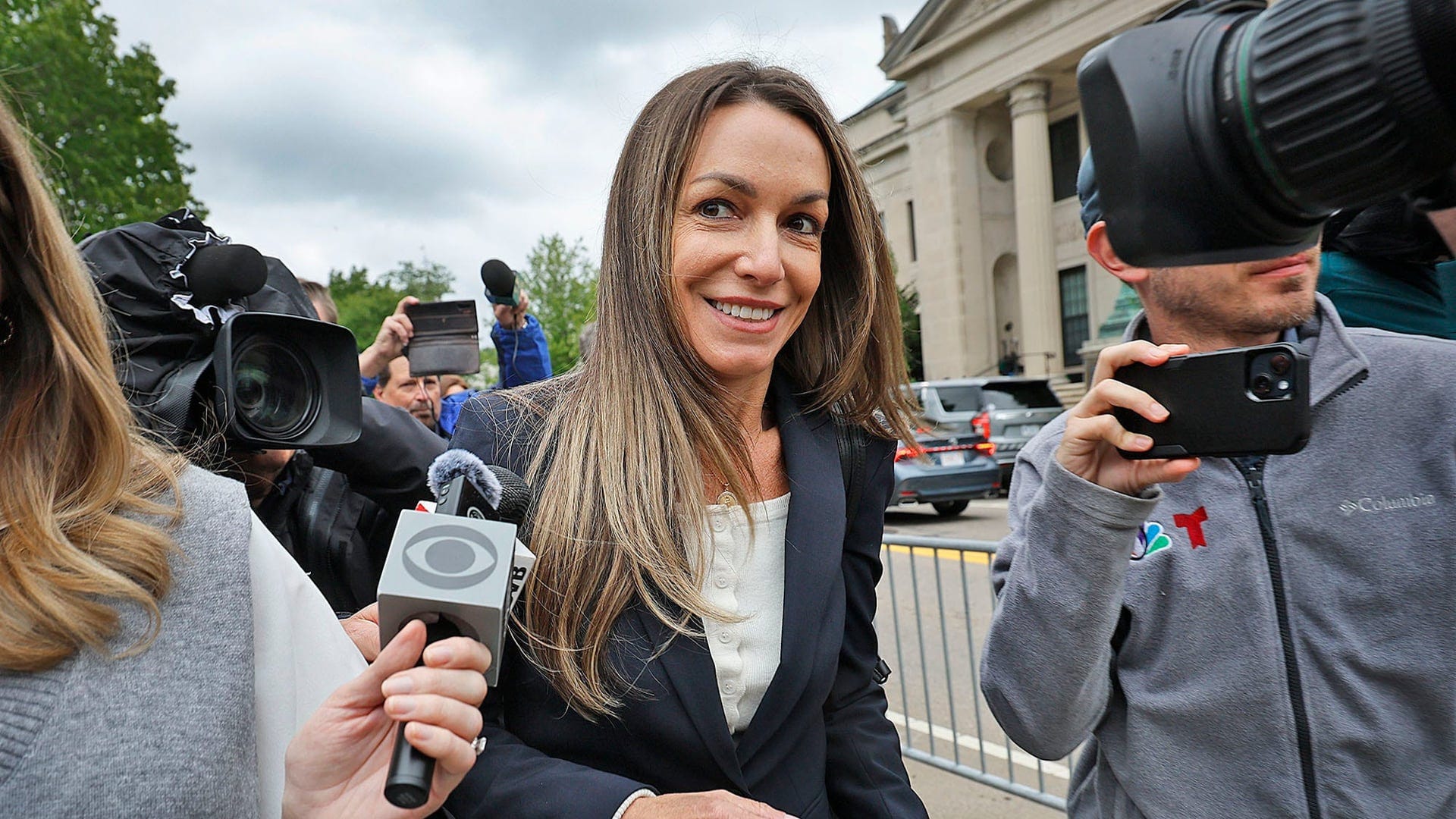Jury reaches verdict in Karen Read murder trial: Read not guilty of most serious charges

Jurors in Karen Read's second trial for the murder of her Boston police officer boyfriend found Read not guilty of the most serious charges and guilty on a lesser charge, ending a weekslong trial that has drawn intense attention from true-crime fans across the country.
The jury convicted Read of operating a vehicle under of the influence but not on charges of second-degree murder and leaving the scene of a collision resulting in death. Read was sentenced to one year probation.
The 12-person panel began discussing Read’s fate Friday, June 13.
Read was charged with second-degree murder, vehicular manslaughter while intoxicated and leaving the scene of a collision resulting in January 2022 death of John O'Keefe. She had pleaded not guilty. Prosecutors said she backed into him with her SUV after a night out drinking and left him to die in the snow. Her defense argued that the whole case is a frame job and shoddy investigation by police officers.
Discover WITNESS: Access our exclusive collection of true crime stories, podcasts, videos and more
Jurors asked four questions in court on June 17, including one query about what would constitute a hung jury, which Judge Beverly Cannone said was theoretical and couldn't be answered.
Earlier on June 18, the jury told a court officer they had reached a verdict, but before Cannone could summon all the parties back to the courtroom, jurors said they did not have a verdict. Cannone ordered that verdict slip be sealed and asked participants to remain in the building for the rest of the day.
The verdict comes nearly a year after the prosecution’s first case against Read ended in a mistrial, when a jury could not come to a unanimous verdict on the charges against her.
Karen Read reacts to verdict
Outside the courtroom, Read thanked a cheering crowd of supporters and said "no one has fought harder for justice for John O’Keefe than I have."
“I could not be standing here without these amazing supporters who have supported me and my team financially and more importantly emotionally for almost four years,” Read said.
Meanwhile, friends of O'Keefe called the jury's verdict "a devastating miscarriage of justice," in a statement to Paste BN.
"Today, our hearts are with John and the entire O’Keefe family. They have suffered through so much and deserved better from our justice system," Jennifer McCabe, Matthew McCabe, Chris Albert, Julie Albert, Colin Albert, Nicole Albert, Brian Albert, Kerry Roberts, and Curt Roberts said in a statement. "While we may have more to say in the future, today we mourn with John’s family and lament the cruel reality that this prosecution was infected by lies and conspiracy theories spread by Karen Read, her defense team, and some in the media."
How long did the jury deliberate in Karen Read's first trial?
Read's first trial ended in a mistrial on July 1, 2024. It came after jurors couldn't come to unanimous decisions on the charges over five days of deliberating, according to the Patriot Ledger, part of the Paste BN Network.
Jurors in 2024 told Cannone after three days of deliberating they couldn't reach a verdict, and she sent them back to deliberate further. The next day, jurors said they still couldn't reach a decision, and Cannone gave them the Tuey-Rodriguez charge, a special set of instructions often read to deadlocked juries derived from a pair of state Supreme Judicial Court cases.
Finally, on the fifth day, jurors still said they couldn't reach a verdict and Cannone declared a mistrial.
Catch up with our coverage and analysis from the most pivotal moments of the retrial.
- Why Karen Read is a true-crime obsession
- Karen Read screams: Jennifer McCabe, prosecution’s star witness, testifies
- Scratches, taillight shards, hair: Jurors get a look at Karen Read’s SUV
- The dog did it? What to know about the German Shepherd tied to the Karen Read trial
- Karen Read claims police bungled the investigation. What did they supposedly do wrong?
- Was John O'Keefe struck by a baseball bat? Doctor testifies about cops injuries
- Karen Read Trial in hands of jury: Which evidence could tilt the case?
The trial has drawn crowds outside the Dedham, Massachusetts, courthouse with many wearing pink, Read's favorite color, and carrying signs to show support for her.
Contributing: Karissa Waddick, Christopher Cann and N'dea Yancey-Bragg, Paste BN; Jessica Trufant, the Patriot Ledger